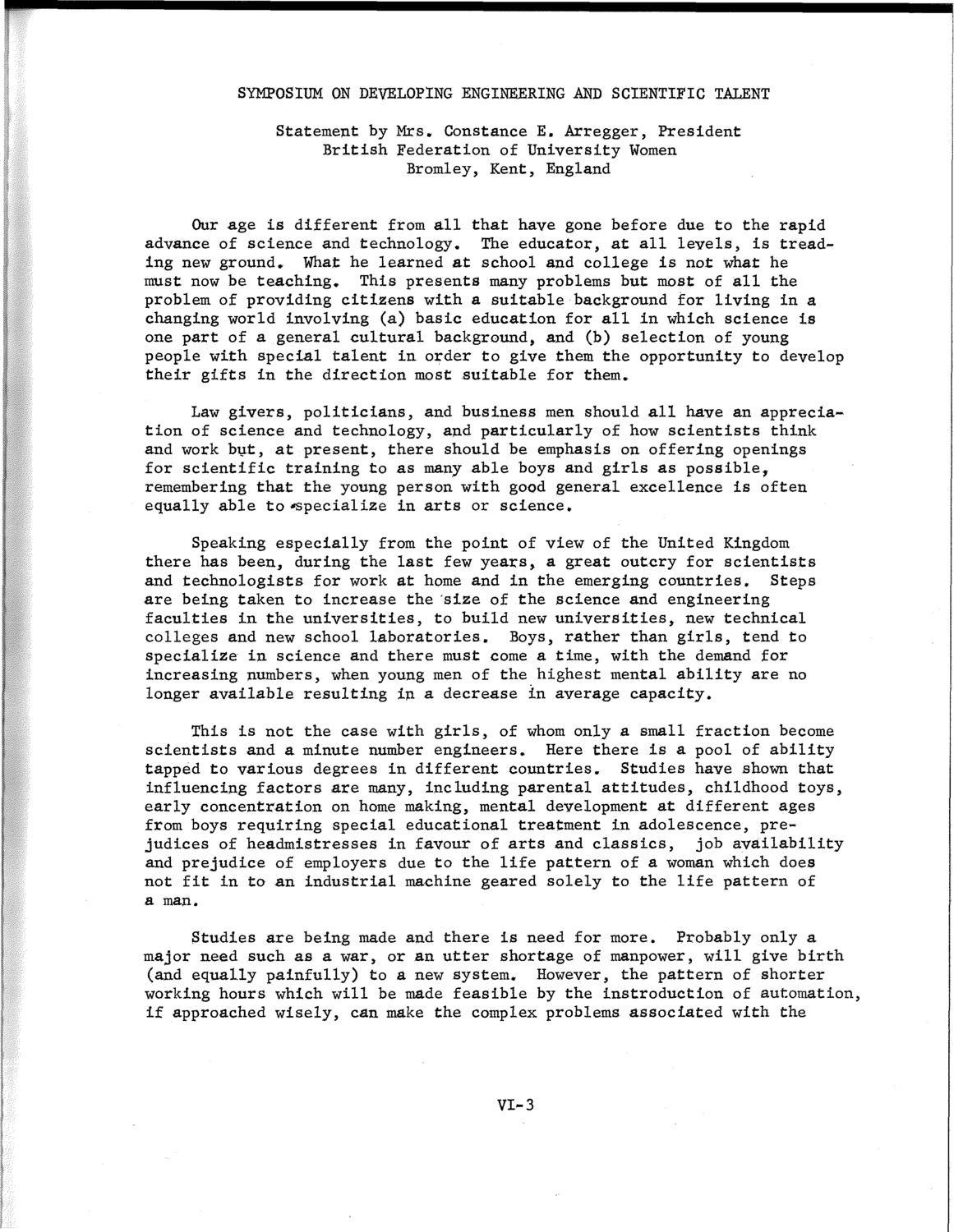| |
| |
Caption: SWE - Proceedings of the First International Conference of Women Engineers and Scientists
This is a reduced-resolution page image for fast online browsing.

EXTRACTED TEXT FROM PAGE:
SYMPOSIUM ON DEVELOPING ENGINEERING AND SCIENTIFIC TALENT Statement by Mrs. Constance E, Arregger, President British Federation of University Women Bromley, Kent, England Our age is different from all that have gone before due to the rapid advance of science and technology. The educator, at all levels, is treading new ground. What he learned at school and college is not what he must now be teaching. This presents many problems but most of all the problem of providing citizens with a suitable background for living in a changing world involving (a) basic education for all in which science is one part of a general cultural background, and (b) selection of young people with special talent in order to give them the opportunity to develop their gifts in the direction most suitable for them. Law givers, politicians, and business men should all have an appreciation of science and technology, and particularly of how scientists think and work but, at present, there should be emphasis on offering openings for scientific training to as many able boys and girls as possible, remembering that the young person with good general excellence is often equally able to-specialize in arts or science. Speaking especially from the point of view of the United Kingdom there has been, during the last few years, a great outcry for scientists and technologists for work at home and in the emerging countries. Steps are being taken to increase the size of the science and engineering faculties in the universities, to build new universities, new technical colleges and new school laboratories. Boys, rather than girls, tend to specialize in science and there must come a time, with the demand for increasing numbers, when young men of the highest mental ability are no longer available resulting in a decrease in average capacity. This Is not the case with girls, of whom only a small fraction become scientists and a minute number engineers. Here there is a pool of ability tapped to various degrees in different countries. Studies have shown that influencing factors are many, including parental attitudes, childhood toys, early concentration on home making, mental development at different ages from boys requiring special educational treatment in adolescence, prejudices of headmistresses in favour of arts and classics, job availability and prejudice of employers due to the life pattern of a woman which does not fit in to an industrial machine geared solely to the life pattern of a man. Studies are being made and there Is need for more. Probably only a major need such as a war, or an utter shortage of manpower, will give birth (and equally painfully) to a new system. However, the pattern of shorter working hours which will be made feasible by the instroduction of automation, if approached wisely, can make the complex problems associated with the VI-3
| |